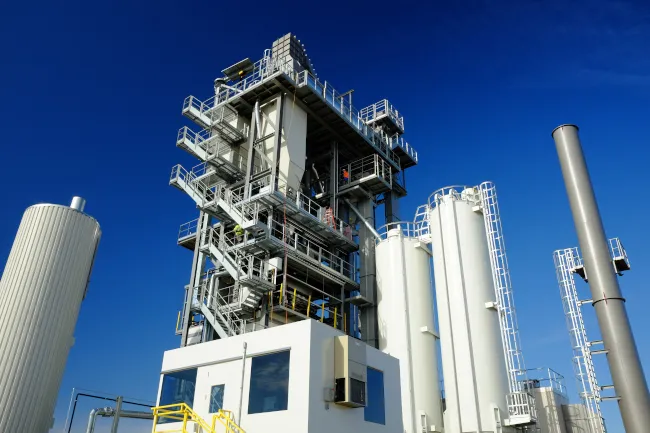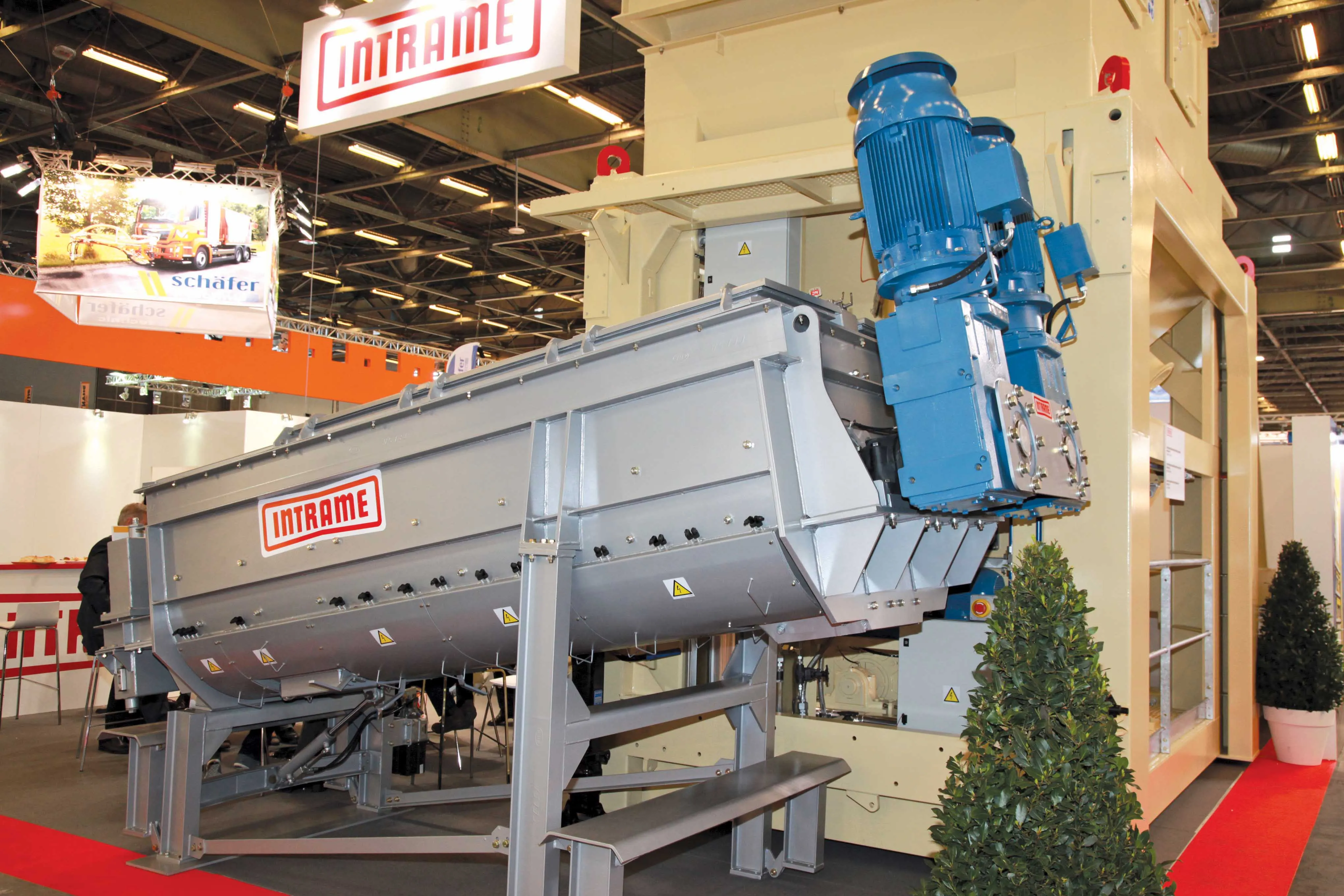
The producer signed the deal for the plant in late 2016, deciding that this equipment would fit its requirement for the use of a high percentage of RAP in its feed, as well as for production versatility. RAP Management had looked at several different types of plants at trade exhibitions and had also toured various production facilities where the plants are manufactured while making its decision as to which equipment to purchase.
One feature that swung the decision was the ability of the HRT plant to produce a high quality output cost effectively, using RAP.
The firm says that the HRT system works by heating recycled material being added to the mix. The parallel dryer sits on top of the plant and allows the user to deliver heat energy to the RAP efficiently. The company says that this allows it to use a higher percentage of RAP while reducing the super-heating requirement for the virgin aggregate necessary to meet desired material specifications. The plant can also meet the firm’s output needs, producing 158-253tonnes/hour, depending on demand from the customers as well as the percentage of RAP in the mix. The system is also versatile and can supply specialty mixes as required, dosing small quantities of additives to meet the performance grade of formula as necessary.
According to the firm, using the Ammann plant with its ability to incorporate a high percentage of RAP in the mix is delivering cost savings during production, which provides a financial incentive for customers to use this material. In the US, the road building sector recycles around 20% of asphalt on average but, using this plant, RAP Management is using around 60% in its feed materials on average.
The Ammann ABP HRT features Ammann’s proprietary as1 Control System, which allows specifications to be set accurately according to RAP Management. And this system also collates data about the asphalt produced, allowing the firm to streamline its operations.








